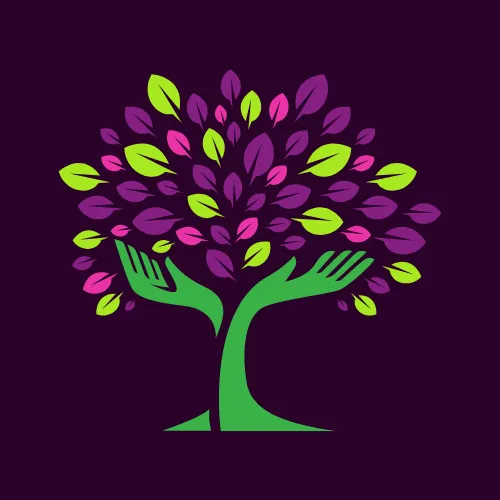We use cookies to improve your experience on our site. By using our site, you consent to the use of cookies. Rejecting cookies will prevent non-essential cookies from loading.
Welcome To The Growth Gazette Blog!
This blog is designed especially for young adults seeking to transform past adversities into opportunities for self-improvement, clarity, growth, and personal transformation.
If you are feeling directionless, unseen, hopeless, lost, confused, isolated, alone, or unfulfilled, you've come to the right place.
Through the lens of my personal experiences—traveling to 14 countries, pursuing a career in acting, growing up with a single mother and drug addicted and alcoholic father, and overcoming the loss of a close friend—I understand the importance of facing fears and seeking personal growth. With the guidance of a life coach, I found my way to a more fulfilling, purpose-driven life.
I grew up with ADD and was labeled to have a learning disability. Always struggling with school and barely passing any of my classes. I got arrested multiple times when I was a teenager and got expelled from my school district.
But, I overcame all that. One day while in a drunk tank after being arrested for the 6th time at the age of 16, I said enough is enough.
I began to change the story that I was telling myself, diving deep into non-fiction books, taking courses, getting coached, and changing my belief system and mindset.
Now, I am here to help you do the same. At The Growth Gazette, you'll find:
Life Coaching Insights: Practical tips and strategies to empower you to take control of your life.
Overcoming Challenges: Proven methods to help you face and conquer your fears and obstacles.
Personal Growth Techniques: Tools to cultivate a growth mindset and overcome limiting beliefs and negative thoughts.
Empowering Articles: Stories and advice to inspire and motivate you on your personal development journey.
Join our community and unlock your potential. Embrace the journey of self-discovery and transformation. Let's work together to set clear goals, find your true purpose, and create a positive impact in your life and the world.
Welcome aboard! Let’s grow together.

How to Awaken the Hidden Power That Shapes The Future
Values are the unseen forces that shape our lives and how we shape our identity. They influence every decision we make, guiding our behavior, our choices, and how we respond to life’s challenges. Whether we are aware of them or not, our values are always directing us.
The question is: are we aligned with our core values, or are we living in conflict with them? In this post, we’ll explore the importance of values, how to identify your core values, how values tell us to behave, what values are important to us, and how understanding them can create clarity and direction in your life.
What Are Core Values?
At their essence, core values are the principles, beliefs, and standards that are most important to us. They are the fundamental pillars that define what we stand for and what we aspire to in life. Core values can be anything from honesty and kindness to adventure, success, and growth.
Tony Robbins refers to values as "emotional states" that we strive for or avoid. These emotional drivers affect every aspect of our lives, from our career choices to how we interact in relationships. Similarly, Brené Brown speaks about the power of living in alignment with our core values to foster courage and wholehearted living.
Think of values like a driving force, something that pulls you rather than pushes you towards something. We strive towards our values in everyday life whether we know it or not. Which could be pulling us towards the future we desire, or moving us farther away.
Definition: Core values are deeply ingrained principles that guide our actions, shape our behavior, and influence how we interact with the world around us.
Why Values Are Important
Our values influence our behavior and decisions. They shape the way we interact with the world and provide us with direction and purpose. Understanding what values drive us—whether consciously or unconsciously—gives us clarity. Ashley Stahl, career coach and author of You Turn, emphasizes the critical role of values in career satisfaction, noting that “without knowing your values, you’ll always feel lost.”
When we live in alignment with our values, life feels more fulfilling. However, when there’s a conflict between our core values and our current situation, we can feel confused, directionless, or frustrated.
Can Values Change?
Values are not static. They evolve with time and experience. As you grow, your circumstances change, and so do your values. For example, in your younger years, adventure might have been a top priority, guiding your decisions to travel and take risks. However, as life progresses, values like stability or growth might rise to the forefront, guiding you toward new goals and aspirations.
This constant evolution of values is crucial in shaping the future and allowing for self-transformation. It’s important to reassess your values regularly to ensure they align with where you want to go in life.
The key to living a value-aligned life is self-awareness. Brené Brown, in her research on courage and vulnerability, speaks of how essential it is to regularly reflect on our values. Our values can change over time as we grow, evolve, and experience new phases of life.
For example, your top value five years ago may have been adventure, pushing you to travel and seek new experiences. But now, as you’ve grown, your top values may have shifted to achievement and personal growth. This doesn’t mean one value is better than the other—it just means that we evolve, and our values evolve with us.
Self-reflection is vital because it helps us stay attuned to these changes. Every year, or even every month, it’s a good practice to revisit and assess our values. This process gives us the clarity we need to adjust our goals and actions accordingly.
How Values Tell Us to Behave
Values act as your internal compass. They tell you how to behave in different situations, especially during moments of stress or decision-making. If one of your top values is compassion, it will likely influence how you treat others in difficult times. If success is a key value, it may push you to work hard and pursue your goals, even in the face of obstacles.
The clearer you are about your values, the more aligned your behavior becomes with your long-term aspirations.
Where Values Come From
Values are often shaped by your upbringing, culture, and life experiences. They can also evolve through personal reflection and self-awareness. Understanding where your values come from is a powerful way to gain insight into why you behave the way you do and how you can consciously choose which values to prioritize.
Reflecting on your past can help you identify the moments in life that shaped your values. Whether it’s a mentor who instilled the value of integrity, a parent or a difficult experience that taught you resilience, your values are often formed by key moments in your journey.
Moving Towards vs. Moving Away From Values
Values can be broken down into two categories: moving towards and moving away from values.
- Moving Towards Values: These are the emotional states, feelings, or experiences that we seek and strive for. They are what we want more of in our lives. Examples include success, achievement, love, freedom, and growth.
- Moving Away From Values: These are the emotional states or experiences that we try to avoid. They often stem from pain or fear, and we do everything in our power to steer clear of them. Examples include rejection, failure, loneliness, or conflict.
Example of Value Conflict:
Let’s say your number one "moving towards" value is success, but your top "moving away from" value is rejection. Here lies a conflict: in order to achieve success, you’ll inevitably face rejection. The fear of rejection can hold you back from pursuing the success you crave. This is why it's so important to understand these values—so that we can navigate the inner conflicts they might create.
Creating a Hierarchy of Values
While Brené Brown argues that we only have two primary values that truly guide us, Jim Collins reminds us that “if you have more than three priorities, you have no priorities.” While I respect their perspectives, I believe that while we may have two or three dominant values at any given time, we value many different things. Life is complex, and we can’t ignore the variety of values that impact our day-to-day decisions.
Exercise: Identify and rank your top five "moving towards" values and your top five "moving away from" values. Creating a hierarchy helps you gain clarity on what is most important to you and which values are currently influencing your actions.
Example Values:
- Moving Towards Values: Growth, connection, success, freedom, and creativity.
- Moving Away From Values: Rejection, failure, conflict, insecurity, and loneliness.
Click here to download a list of fifty moving-towards values and moving-away from values and create your hierarchy of your top five for each values list.
Once you identify these values, the next step is to ask yourself: Are my actions aligned with my top values? And if not, what can I change to live in alignment with them?
The Power of Understanding Value Conflicts
When our values are in conflict, it’s easy to feel confused or stuck. For instance, if you highly value both security and adventure, there may be moments in life where these values pull you in opposite directions. You may want to explore new opportunities but fear losing the stability you’ve built. This tension is natural, but recognizing it helps you make decisions that balance both needs.
It's also incredibly important to recognize this in potential or current partners. Conflict in values is almost always the main reason why past relationships didn't work out and could potentially be why your current relationship is struggling.
Exercise: Write down any potential conflicts between your "moving towards" and "moving away from" values. Then, reflect on how these conflicts may be affecting your choices and what steps you can take to resolve them.
Exercise: Grab a journal or notebook and begin to reflect on your current or past relationship. Does there seem to consistently be conflict between the two of you? Do you happen to fight a lot? Take this time and plan out at least once a week to identify what your partners core value are or could be, and even feel free to sit down with your partner and ask!
Once you identify what your partners values are, are they in conflict with yours? Did you realize that you and your partner are polar opposites?
An Exercise to Identify Your Core Values
To help you get started on identifying your core values, here’s a simple exercise:
1. Write down a list of 10 values that resonate with you the most. These can be anything—freedom, growth, love, security, etc.
2. From this list, narrow it down to five that truly represent your core.
3. Next, write down five "moving away from" values—these are the states or experiences you avoid.
4. Now, rank them in order of importance.
5. Reflect on how these values have influenced your decisions, behaviors, and life choices. How are they guiding you today? Are you living in alignment with them?
6. Identify if there are any conflicts with your moving-towards and moving-away from values.
Creating a Life of Meaning and Fulfillment:
Once you identify your core values and resolve any conflicts, it becomes easier to align your life’s decisions with what truly matters. The more you live in alignment with your values, the more meaning, purpose, and fulfillment you will experience.
Are Values and Morals the Same?
A common question is whether values and morals are the same. While they overlap in guiding behavior, there is a subtle distinction. Morals are generally seen as universal standards of right and wrong, often influenced by society, religion, or culture. Values, on the other hand, are personal beliefs that direct your individual actions and decisions.
For example, a moral might dictate that lying is wrong, whereas a value such as honesty shapes how you consistently choose to communicate in everyday life. Clarifying this difference is the first step toward aligning with what truly matters to you.
Living a Value-Aligned Life
Understanding and living in alignment with your core values is one of the most powerful steps you can take toward creating a purposeful and fulfilling life. By identifying your "moving towards" and "moving away from" values, you gain clarity on what drives you and what holds you back. With this clarity, you can take action, overcome conflicts, and start moving toward the life you truly desire.
P.S.
Know anyone who might benefit from these exercises and articles? Sharing is one of the best ways for me not only to know that my work is helping people, but it's also the best way to get the word out about my content and coaching!
And if you want tips, insights, and resources straight to your inbox, subscribe to my email newsletter The Growth Navigator to get alerts or updates on my content or coaching!

Eddy Green
My name is Eddy. I am the adult son of a single mother who overcame an emotionally abusive relationship with her drug addict and alcoholic husband. I have overcame my own hardships, having been arrested multiple times up until I was 16 when I was expelled from my school district and almost thrown in jail. Since then I have turned my life around, overcame more hardships, and lived my life focused on growth and making an impact in the world.
Before You Go, Check Out My Newsletter!
Stay Up To Date With Actionable Tips & Advice!
- Afghanistan
- Albania
- Algeria
- American Samoa
- Andorra
- Angola
- Anguilla
- Antarctica
- Antigua and Barbuda
- Argentina
- Armenia
- Aruba
- Australia
- Austria
- Azerbaijan
- Bahamas
- Bahrain
- Bangladesh
- Barbados
- Belarus
- Belgium
- Belize
- Benin
- Bermuda
- Bhutan
- Bolivia
- Bosnia and Herzegovina
- Botswana
- Bouvet Island
- Brazil
- British Indian Ocean Territory
- Brunei Darussalam
- Bulgaria
- Burkina Faso
- Burundi
- Cambodia
- Cameroon
- Canada
- Cape Verde
- Cayman Islands
- Central African Republic
- Chad
- Chile
- China
- Christmas Island
- Cocos (Keeling) Islands
- Colombia
- Comoros
- Congo
- Congo, The Democratic Republic of the
- Cook Islands
- Costa Rica
- Cote D"Ivoire
- Croatia
- Cuba
- Cyprus
- Czech Republic
- Denmark
- Djibouti
- Dominica
- Dominican Republic
- Ecuador
- Egypt
- El Salvador
- Equatorial Guinea
- Eritrea
- Estonia
- Ethiopia
- Falkland Islands (Malvinas)
- Faroe Islands
- Fiji
- Finland
- France
- French Guiana
- French Polynesia
- French Southern Territories
- Gabon
- Gambia
- Georgia
- Germany
- Ghana
- Gibraltar
- Greece
- Greenland
- Grenada
- Guadeloupe
- Guam
- Guatemala
- Guernsey
- Guinea
- Guinea-Bissau
- Guyana
- Haiti
- Heard Island and McDonald Islands
- Holy See (Vatican City State)
- Honduras
- Hong Kong
- Hungary
- Iceland
- India
- Indonesia
- Iran, Islamic Republic Of
- Iraq
- Ireland
- Isle of Man
- Israel
- Italy
- Jamaica
- Japan
- Jersey
- Jordan
- Kazakhstan
- Kenya
- Kiribati
- Korea People's Democratic Republic
- Republic of Korea
- Kuwait
- Kyrgyzstan
- Land Islands
- Lao People's Democratic Republic
- Latvia
- Lebanon
- Lesotho
- Liberia
- Libyan Arab Jamahiriya
- Liechtenstein
- Lithuania
- Luxembourg
- Macao
- North Macedonia
- Madagascar
- Malawi
- Malaysia
- Maldives
- Mali
- Malta
- Marshall Islands
- Martinique
- Mauritania
- Mauritius
- Mayotte
- Mexico
- Federated States of Micronesia
- Moldova, Republic of
- Monaco
- Mongolia
- Montenegro
- Montserrat
- Morocco
- Mozambique
- Myanmar
- Namibia
- Nauru
- Nepal
- Netherlands
- New Caledonia
- New Zealand
- Nicaragua
- Niger
- Nigeria
- Niue
- Norfolk Island
- Northern Mariana Islands
- Norway
- Oman
- Pakistan
- Palau
- Palestinian Territory, Occupied
- Panama
- Papua New Guinea
- Paraguay
- Peru
- Philippines
- Pitcairn
- Poland
- Portugal
- Puerto Rico
- Qatar
- Reunion
- Romania
- Russian Federation
- Rwanda
- Saint Helena
- Saint Kitts and Nevis
- Saint Lucia
- Saint Pierre and Miquelon
- Saint Vincent and the Grenadines
- Samoa
- San Marino
- Sao Tome and Principe
- Saudi Arabia
- Senegal
- Serbia
- Seychelles
- Sierra Leone
- Singapore
- Slovakia
- Slovenia
- Solomon Islands
- Somalia
- South Africa
- South Georgia and the South Sandwich Islands
- Spain
- Sri Lanka
- Sudan
- Suriname
- Svalbard and Jan Mayen
- Eswatini
- Sweden
- Switzerland
- Syrian Arab Republic
- Taiwan
- Tajikistan
- Tanzania, United Republic of
- Thailand
- Timor-Leste
- Togo
- Tokelau
- Tonga
- Trinidad and Tobago
- Tunisia
- Turkey
- Turkmenistan
- Turks and Caicos Islands
- Tuvalu
- Uganda
- UK
- Ukraine
- United Arab Emirates
- United States
- United States Minor Outlying Islands
- Uruguay
- Uzbekistan
- Vanuatu
- Venezuela
- Vietnam
- Virgin Islands, British
- Virgin Islands, U.S.
- Wallis and Futuna
- Western Sahara
- Yemen
- Zambia
- Zimbabwe
- No elements found. Consider changing the search query.
- List is empty.
